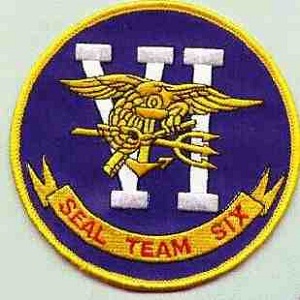There is a lot of buzz about SEAL Team 6 and rightly so. Their exploits are typically not well-known outside of the special operations community, but their recent achievement in Pakistan – the killing of Osama Bin Laden – is clearly too newsworthy to hide.
 SEAL Team 6 is the elite, anti-terrorist group in a special operations community that is already elite. They are penultimate warriors known as “quiet professionals” who move from one mission to the next without the need for acclaim or fanfare. They have expertise in every aspect of armed and unarmed combat and are generally acknowledged as inveterate killers.
SEAL Team 6 is the elite, anti-terrorist group in a special operations community that is already elite. They are penultimate warriors known as “quiet professionals” who move from one mission to the next without the need for acclaim or fanfare. They have expertise in every aspect of armed and unarmed combat and are generally acknowledged as inveterate killers.
But, regardless of the service branch they come from, anyone serving in special forces is, indeed, special. Their physical training is decidedly rigorous and failure rates average around 80%. The severe physical rigors are meant to test a candidate’s fitness, but they also provide an assessment of their psychological adaptability to the chaotic and stressful conditions of combat.
In the book “The Survivors Club: The Secrets and Science that Could Save Your Life“, author Ben Sherwood discusses the unique mental resiliency of people that become U.S. Navy SEALs or Green Berets.
What seems to drive this resiliency in special forces personnel is a unique brain chemistry. Medical research indicates that special forces personnel have higher levels of neuropeptide Y (NPY), an amino acid that helps regulate appetite and blood pressure, among other things.
NPY is like a natural tranquilizer that helps keep adrenaline from blocking the ability to think. Although fear can generate massive amounts of adrenaline, it’s the NPY that keeps adrenaline from overriding logical thought.
Another aspect of this unique brain chemistry is that the heart rates of people with higher levels of NPY do not vary greatly and return to normal much more quickly. This is pretty key for someone storming a house to kill terrorists, yet leaving innocents unharmed. A more stable heart rate and near-normal frontal lobe processing of information, despite physiological stress, means much more accurate target acquisition.
This is not too suggest that special forces like SEAL Team 6 are genetically superior. Although increased NPY seems to be a remarkable advantage in high-stress situations, the presence of it is also a risk factor for heart problems, including sudden death.
SEAL Team 6 faced an uncertain outcome on their recent raid in Afghanistan given the imponderables of the mission. Although elevated levels of NPY helps explain the accuracy of the double-tap that ventilated Osama’s head, it seems clear that they willingly risked their lives for our own sake.
To me, this is what makes them special.
Additional Reading
If you are interested in learning more about SEAL Team 6 or the Navy SEALs, please check out: “Rogue Warrior” by Richard Marcinko or “The Finishing School: Earning the Navy SEAL Trident” by Dick Couch. Both authors are former SEALs.





